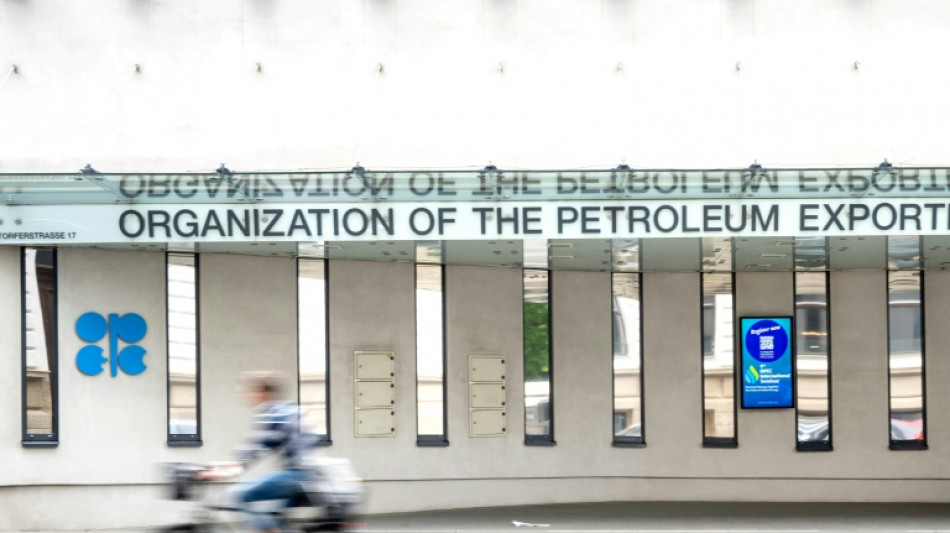
-
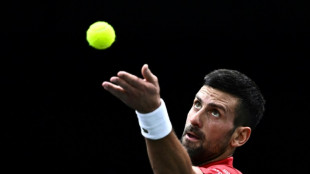 'At home' Djokovic makes winning return in Athens
'At home' Djokovic makes winning return in Athens
-
Manchester City have become 'more beatable', says Dortmund's Gross

-
 Merino brace sends Arsenal past Slavia in Champions League
Merino brace sends Arsenal past Slavia in Champions League
-
Djokovic makes winning return in Athens

-
 Napoli and Eintracht Frankfurt in Champions League stalemate
Napoli and Eintracht Frankfurt in Champions League stalemate
-
Arsenal's Dowman becomes youngest-ever Champions League player

-
 Cheney shaped US like no other VP. Until he didn't.
Cheney shaped US like no other VP. Until he didn't.
-
Pakistan edge South Africa in tense ODI finish in Faisalabad

-
 Brazil's Lula urges less talk, more action at COP30 climate meet
Brazil's Lula urges less talk, more action at COP30 climate meet
-
Barca's Lewandowski says his season starting now after injury struggles

-
 Burn urges Newcastle to show their ugly side in Bilbao clash
Burn urges Newcastle to show their ugly side in Bilbao clash
-
French pair released after 3-year Iran jail ordeal

-
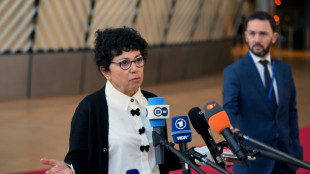 EU scrambles to seal climate targets before COP30
EU scrambles to seal climate targets before COP30
-
Getty Images largely loses lawsuit against UK AI firm

-
 Cement maker Lafarge on trial in France over jihadist funding
Cement maker Lafarge on trial in France over jihadist funding
-
Sculpture of Trump strapped to a cross displayed in Switzerland

-
 Pakistan's Rauf and Indian skipper Yadav punished over Asia Cup behaviour
Pakistan's Rauf and Indian skipper Yadav punished over Asia Cup behaviour
-
Libbok welcomes 'healthy' Springboks fly-half competition

-
 Reeling from earthquakes, Afghans fear coming winter
Reeling from earthquakes, Afghans fear coming winter
-
Ronaldo reveals emotional retirement will come 'soon'

-
 Munich's surfers stunned after famed river wave vanishes
Munich's surfers stunned after famed river wave vanishes
-
Iran commemorates storming of US embassy with missile replicas, fake coffins

-
 Gauff sweeps Paolini aside to revitalise WTA Finals defence
Gauff sweeps Paolini aside to revitalise WTA Finals defence
-
Shein vows to cooperate with France in probe over childlike sex dolls

-
 Young leftist Mamdani on track to win NY vote, shaking up US politics
Young leftist Mamdani on track to win NY vote, shaking up US politics
-
US government shutdown ties record for longest in history

-
 King Tut's collection displayed for first time at Egypt's grand museum
King Tut's collection displayed for first time at Egypt's grand museum
-
Typhoon flooding kills over 40, strands thousands in central Philippines

-
 Trent mural defaced ahead of Liverpool return
Trent mural defaced ahead of Liverpool return
-
Sabalenka to face Kyrgios in 'Battle of Sexes' on December 28

-
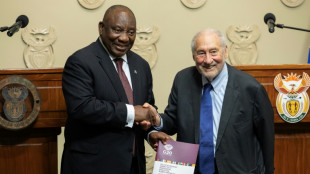 Experts call for global panel to tackle 'inequality crisis'
Experts call for global panel to tackle 'inequality crisis'
-
Backed by Brussels, Zelensky urges Orban to drop veto on EU bid
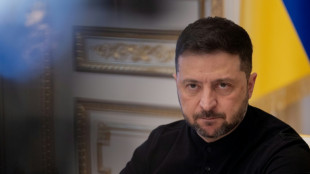
-
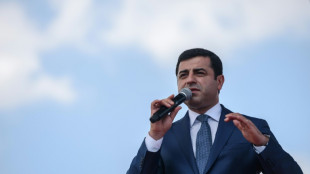 After ECHR ruling, Turkey opposition urges pro-Kurd leader's release
After ECHR ruling, Turkey opposition urges pro-Kurd leader's release
-
Stocks drop as tech rally fades
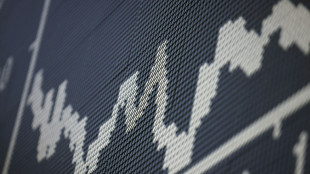
-
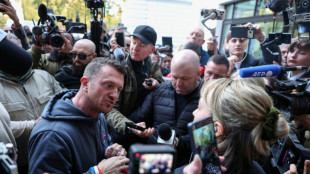 UK far-right activist Robinson cleared of terror offence over phone access
UK far-right activist Robinson cleared of terror offence over phone access
-
World on track to dangerous warming as emissions hit record high: UN
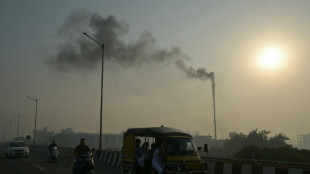
-
 Nvidia, Deutsche Telekom unveil 1-bn-euro AI industrial hub
Nvidia, Deutsche Telekom unveil 1-bn-euro AI industrial hub
-
Which record? Haaland warns he can get even better

-
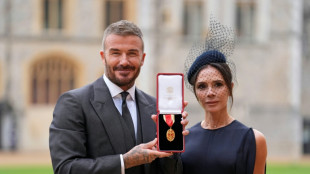 Football star David Beckham hails knighthood as 'proudest moment'
Football star David Beckham hails knighthood as 'proudest moment'
-
Laurent Mauvignier wins France's top literary award for family saga

-
 Indian Sikh pilgrims enter Pakistan, first major crossing since May conflict
Indian Sikh pilgrims enter Pakistan, first major crossing since May conflict
-
Former US vice president Dick Cheney dies at 84
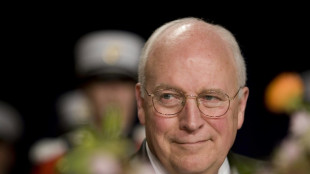
-
 Fiorentina sack Pioli after winless start in Serie A
Fiorentina sack Pioli after winless start in Serie A
-
Stocks drop as traders assess tech rally
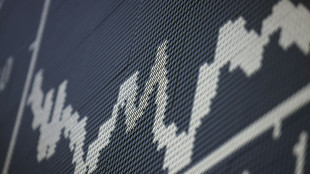
-
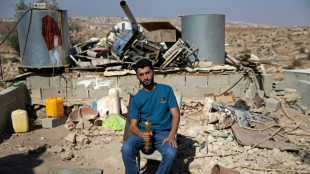 Oscar-winning Palestinian films daily 'Israeli impunity' in West Bank
Oscar-winning Palestinian films daily 'Israeli impunity' in West Bank
-
Spain's Telefonica shares drop on dividend cut, net loss

-
 Fierce mountain storms kill nine in Nepal
Fierce mountain storms kill nine in Nepal
-
Divisive Czech cardinal Dominik Duka dies at 82
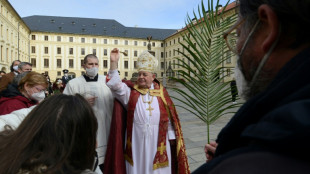
-
 Shein vows to cooperate with France in sex doll probe
Shein vows to cooperate with France in sex doll probe
-
EU in last-ditch push to seal climate targets before COP30
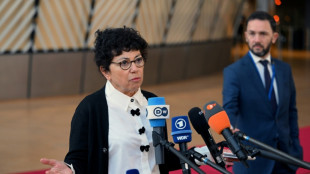

Tough negotiations and uncertainty ahead of OPEC+ meeting
Uncertainty loomed over what Saudi Arabia, Russia and six other key members of the OPEC+ alliance would decide on crude output in their meeting on Sunday, with analysts saying a production boost was also being considered.
The meeting by the group of eight oil-producing countries known as the "Voluntary Eight" (V8) comes as oil prices extended losses in anticipation of excess supply in the coming months.
In a bid to prop up prices, the wider OPEC+ group -- comprising the 12-nation Organization of the Petroleum Exporting Countries (OPEC) and its allies -- had agreed in recent years to several output cuts that amounted to almost six million barrels per day (bpd) in total.
Since April, the V8 group -- namely Saudi Arabia, Russia, Iraq, United Arab Emirates, Kuwait, Kazakhstan, Algeria and Oman -- has made a marked policy shift, placing increased focus on regaining market share and agreeing on a series of output hikes.
A week ago, analysts said the V8 nations were likely to maintain their current output levels in October.
Oil prices have hovered around a low $65-$70 per barrel, tumbling 12 percent this year as global producers outside OPEC+ ramp up supply and tariffs curb demand.
According to Jorge Leon, an analyst at Rystad Energy, demand for oil is expected to fall in the fourth quarter, with "seasonal demand tending to be lower" than during the northern hemisphere's summer months.
Even if the group does not boost production, excess supply will gradually lead to lower prices, he told AFP.
- Market surplus -
But since Wednesday, "some market chatter suggested the group may opt for another quota adjustment for October", said Ole Hansen, an analyst at Saxo Bank.
Such a decision "would mean that (the group is) really serious about regaining market share", said Leon, even if it means seeing prices fall below $60 a barrel.
Moreover, "OPEC's own analysis actually indicates that there is room for more oil in the market in the coming quarters", said analyst Arne Lohmann Rasmussen of Global Risk Management.
"That fact alone may have encouraged the cartel to consider (reintroducing into the market) a second layer of voluntary production cuts," he said, referring to reductions of 1.66 million bpd that were agreed in spring 2023.
So far, crude prices have held up better than most analysts had predicted since the production increases began, due in particular to looming geopolitical risks that have supported prices.
- Geopolitical turmoil -
Meanwhile, oil specialists are keeping a close eye on Moscow's war in Ukraine as well as developments regarding US-Russia relations.
US President Donald Trump, whose efforts to mediate between Russia and Ukraine have failed to produce a breakthrough, has recently targeted Russian oil and those who buy it.
In August, he imposed higher tariffs on India as punishment for its purchases of Russian oil.
In a meeting with allies of Ukraine who gathered in Paris on Thursday, Trump told leaders via a video conference that he was frustrated with EU purchases of Russian oil, particularly by Hungary and Slovakia.
A senior White House official told AFP on condition of anonymity that Trump had insisted "Europe must stop purchasing Russian oil that is funding the war".
He also called on European countries to put economic pressure on China for its support of Russia's war effort, as Beijing is the largest importer of Russian oil.
Curbing Russian exports could free up market space for OPEC+ nations.
But Russia, the second-largest producer after Saudi Arabia, would probably find it difficult to take advantage of a further increase in quotas due to its interest in maintaining "high oil prices to finance its war in Ukraine", Lohmann Rasmussen said.
Y.AlMasri--SF-PST
